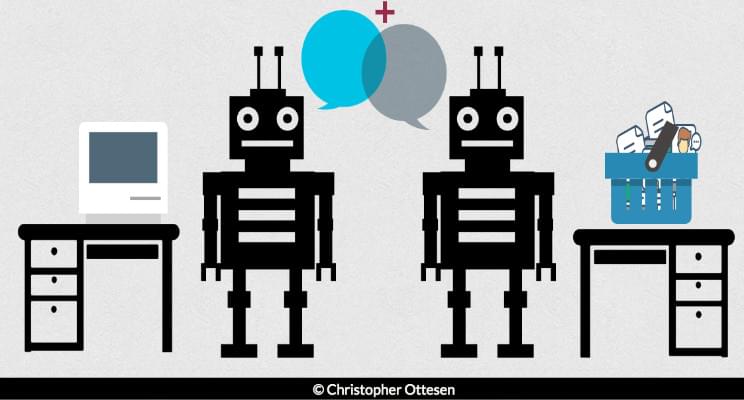Challenges such as data quality, models, algorithms, processing power and processing speed are well spoken challenges within data science, but one highly important challenge that rarely get mentioned is the ethical aspect of Data Science (Presthus, 2012). With the rise of even more connected devices, digital services and automated systems the amount of data that are gathered and stored is tremendous. This reputedly innocent data can be used for surveillance, mapping of people’s habits and last but not least make people’s life easier if the data is utilized in a properly and ethical manner.
The Norwegian loyalty program _Trumf, _is a cooperation between major Norwegian retailers. As a member of Trumf you get one percent cash back when for example grocery shopping (Trumf, u.d.). The system is associated with a bank account number and every transaction is logged. The _Trumf _system creates individual-tailored shopping coupons by predicting what the customers needs based on transaction history. In an economical aspect, this makes grocery shopping a bit cheaper when the groceries you need “always” is on sale. Unfortunately, the coupons probably make you buy more than intended, and additionally this can have unintended consequences; for example, the US-based retailer Target analyses in the manner described above. By utilizing these techniques, they were sending coupons for pregnancy products to a young teenage girl. This made her father furious, and he scolded at Target representatives for promoting pregnancy items to his young daughter. Time passed by, and it turned out Targets algorithms had uncovered her teenage pregnancy based on items she had bought with her credit card. The algorithms uncovered the pregnancy of the young girl before her parents living in the same house did (Ramesh Sharda, 2014).
The story above is a prime example of how such algorithms can be problematic when a company knows more about you than your closest friends and relatives. The gathered data can for example be analysed and estimate customers health level based on what and when the customer go shopping. Furthermore, this data can be linked with factors such as age, location, gender and more. The customer profile can be shared with third parties, and even merged with the third parties customer data, making a great automatic segmentation tool.
In a scenario where an insurance company gets their hands on such a customer profile, they could favour people with a healthy lifestyle when calculating insurance fees. The company could make it more expensive for people that regularly buy frozen pizza, and whose health profile forecast that the person’s health is likely to fail. Truth be told this is nothing new, in Georgia (USA) smokers has to pay a higher insurance fee than non-smokers (Ramesh Sharda, 2014). The only difference would be an automated system that detects and categorize individual people. On the other hand, such a system is in great favour for healthy people whom will have an economic advantage opposed to their unhealthy peers.
There is no secret that personal data of the consumers are used commercially, and more people should understand the opportunities, dangers and possibilities of this fast-emerging technology. By raising the awareness of these capabilities more people would limit the uncritical sharing of their personal information and carefully choose what to share.
There is no way for a consumer to control how his or her data is utilized and analysed, but in order to function normally in the modern society one have to trust that the vendors and data analysts behind the digital services we use every day are following ethical guidelines and keeping the individual consumer’s privacy intact. To ensure these guidelines are followed people has to know about the power of data, and the data analysts has to familiarize themselves with ethics and privacy. The only other option is to disconnect from the internet, stop using a phone, using physical cash only and basically staying away from most of our modern society.
References
Presthus, D. W., 2012. _Biblogg. _[Online] Available at: http://biblogg.no/2012/12/14/ingen-grunn-til-panikk-vi-har-nemlig-etikk-men-hvorfor-folger-vi-ikke-retningslinjene/ [Accessed 17 04 2016].
Ramesh Sharda, D. D. E. T., 2014. _Business Intelligence and Analytics: Systems for Decision Support. _10 ed. s.l.:Pearson.
Trumf, n.d. _Trumf. _[Online] Available at: https://www.trumf.no/Om-Trumf/Hjelp/[Accessed 17 04 2016].
Auto Amazon Links: No products found.









